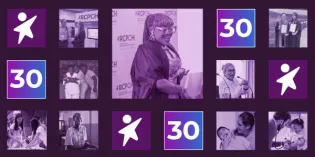Formed in 1986, the BPSU is a activity supported by Public Health England, UCL Institute of Child Health and the Royal College of Paediatrics and Child Health.
The unit aims to:
- facilitate research into uncommon childhood infections and disorders for the advancement of knowledge and to effect practical improvement in prevention, treatment and service planning
- allow paediatricians to participate in surveillance of uncommon disorders and to lessen the burden on reporting doctors of such requests arising from numerous different sources
- increase awareness within the medical profession and public of the less common disorders studied and respond rapidly to public health emergencies
- collaborate with our link surveillance units in the UK and across the world.
Phone: +44 (0)20 7092 6173/74
Email: bpsu@rcpch.ac.uk
Recent content
Basic page
BPSU study - Sydenham's chorea
The first ever prospective surveillance of Sydenham's chorea in the UK and Ireland commenced in November 2018 and will run for two years. This study is being undertaken in collaboration with the Exeter Medical School and the Child and Adolescent Psychiatry Surveillance System. The study aims to exa...
News
Dr Shamez Ladhani appointed as Chair of the British Paediatric Surveillance Unit
20 August 2018
Shamez will take over from Dr Richard Reading in September. The BPSU office, study teams, and Scientific Committee extend their gratitude to Richard for his astute leadership over the past five years.
Basic page
BPSU study - Fetal Alcohol Syndrome
Surveillance of Fetal Alcohol Syndrome (FAS) commenced in October 2018. The study aims to determine the incidence of FAS in the UK and Ireland; investigate which services are accessed by babies and children affected by the condition; and raise awareness about FAS among clinical practitioners.
Th...
Basic page
Privacy notice - British Paediatric Surveillance Unit (BPSU
This privacy notice covers the personal data of the BPSU clinical respondents who contribute to the BPSU epidemiology system. This privacy notice does not cover the use of clinical data or the legal grounds for processing it.
Privacy details on the clinical data collected by the study teams is a...
Basic page
BPSU - Annual reports
The British Paediatric Surveillance Unit produced annual reports to review the surveillance undertaken for the previous year and provide information on upcoming studies. Our most recent annual report is from 2020-21, and you can download this and previous reports.
Basic page
BPSU study - Acute severe poisonings
Commencing in July 2018, this surveillance study aims to determine the incidence of accidental poisoning; identify trends in severe poisonings that might inform public health interventions; describe the demographics of presenting populations; and calculate the severity of the poisoning event as dete...
Basic page
BPSU study - Attention Deficit Hyperactivity Disorder (ADHD) in transition between children’s services and adult services (CATCh-uS)
Surveillance of children and adolescents with Attention Deficit Hyperactivity Disorder (ADHD) in transition between children’s services and adult services (CATCh-uS) focused on what happens to young people with ADHD when they are too old to stay with children’s services. Surveillance was also run in...
Basic page
BPSU study - Acute rheumatic fever
Surveillance of acute rheumatic fever (ARF) in children and young people aged 16 years and younger concluded in May 2016. The study is being led by Dr Mary Salama of Birmingham Children's Hospital, winner of the Sir Peter Tizard Bursary. The study group are yet to publish their findings.
Basic page
BPSU study - Type 2 diabetes
Surveillance of type 2 diabetes in children and young people less than 17 years of age concluded in April 2016. This is a repeat of study from 2005 and the research team hope to identify the incidence of newly diagnosed type 2 diabetes in children and young people and understand how this has changed...
Basic page
BPSU study - Enterovirus and parechovirus meningitis
Surveillance of enterovirus and parechovirus meningitis in infants less than 90 days of age concluded in July 2015. The study team hope to understand the clinical burden of the condition. A paper has now been published in Archives of Disease in Childhood - see below link to the abstract.







